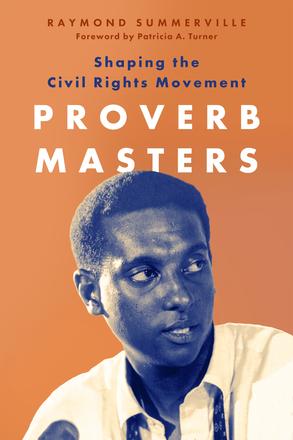
Proverb Masters
Shaping the Civil Rights Movement
An examination of the lasting impact of proverbial language on the long civil rights movement
Description
In Proverb Masters: Shaping the Civil Rights Movement, author Raymond Summerville explores how proverbs and proverbial language played a significant role in the long civil rights era. Proverbs have been used throughout history to share and disseminate brief, powerful statements of truth and philosophical insight. Oftentimes, these sayings have helped unite people in struggles for social justice, serving as rallying cries for just causes. During the civil rights era, proverbs allowed leaders to craft powerful and evocative messages. These statements needed to be made implicitly, as explicit messages were often met with retaliation and even violence.
Looking at the autobiographies, biographies, speeches, diaries, letters, and critical texts of Charles W. Chesnutt, Ida B. Wells, A. Philip Randolph, Bob Dylan, Malcom X, Stokely Carmichael, and Septima Clark, the volume analyzes how these figures employed proverbs in support of social justice causes and in civil rights struggles. Summerville argues that these individuals generated enough print material embedded with proverbs and proverbial language that they should be considered proverb masters. With chapters dedicated to each figure, Summerville reveals their adept uses of this powerful linguistic tool.
Reviews
"Raymond Summerville’s Proverb Masters: Shaping the Civil Rights Movement comes to . . . all manner of people interested in Black culture, folklore, and history not a minute too soon."
- from the foreword by Patricia A. Turner